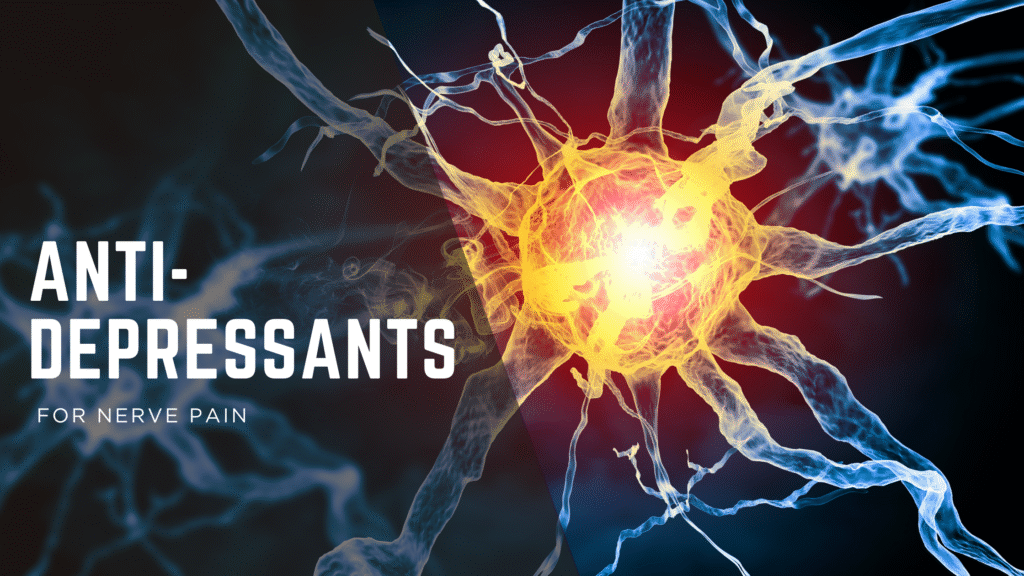As a physiotherapist helping people manage long-term pain, I’ve seen firsthand how confusing and frustrating chronic pain can be, especially when it’s caused by nerve pain.
One question I often get is: ‘Why is my doctor giving me antidepressants for pain if I’m not depressed?’ So, let’s break it down and share what we know about how these medications help with nerve pain.

What exactly is nerve pain?
Nerve pain, or neuropathic pain, feels very different to the usual muscle or joint pain. It can feel like burning, tingling, shooting, or even electric shocks. You might get it from a condition like sciatica, shingles, diabetes, or after a surgery.
This type of pain doesn’t always respond well to standard painkillers like anti-inflammatories. That’s where antidepressants come in.
So, why antidepressants?
I know it sounds odd. You’re not depressed, so why an antidepressants?
It turns out, these medications do more than just help mood. Some types also work on the nervous system in ways that help reduce pain signals. And they often start working for pain relief faster than they do for mood, which shows they have a different role.
The body’s own pain modulation system
Your brain and spinal cord have a built-in ‘braking system’ to calm pain signals. When you have nerve pain, this system doesn’t work as well. Antidepressants help boost brain chemicals like noradrenaline (and sometimes serotonin), which help this system work more effectively to dial down the pain.
Which antidepressants work best for nerve pain?
From what is seen in research:
– Tricyclic antidepressants (TCAs), like amitriptyline, are very effective for nerve pain.
– SNRIs (serotonin-noradrenaline reuptake inhibitors), like duloxetine, are also helpful.
– SSRIs (which mainly boost serotonin), like fluoxetine or sertraline, aren’t as effective for pain but may still have a mild benefit.
Noradrenaline – The key player
Of all the brain chemicals involved, noradrenaline seems to be the most important for calming nerve pain.
It works in the spinal cord to reduce the sensitivity of overactive nerves and helps restore balance after nerve injuries.
The role of the brain’s pain center
There’s a small part of your brainstem called the locus coeruleus (LC). It sends noradrenaline down to the spinal cord to help control pain. When this system is not working properly, common in people with nerve pain, antidepressants help reset and support it.
Do serotonin and dopamine help nerve pain too?
Yes, but they’re more like the ‘support crew’ to noradrenaline’s ‘star player.’
Serotonin can either help or sometimes make things worse depending on the receptor it attaches to. Dopamine may also help ease pain by influencing the brain’s reward and motivation circuits.
Should you consider them?
If you’ve got persistent nerve pain and haven’t had much success with other treatments, it might be worth talking to your GP or pain specialist about these medications.
They’re not suitable for everyone, and there can be side effects, but when they work, they can make a big difference.
A physio’s final word
As a physio, I always recommend a full approach to managing pain: movement, education, pacing, and sometimes medication. Antidepressants for pain aren’t a cure, but they can help reduce the intensity enough to get you moving and back to doing the things you love.
If you’re not sure whether these medications are right for you, talk to your healthcare team. And keep learning. Understanding your pain is the first step to changing it.
For a more detailed outline of how anti-depressants help with nerve pain click here.